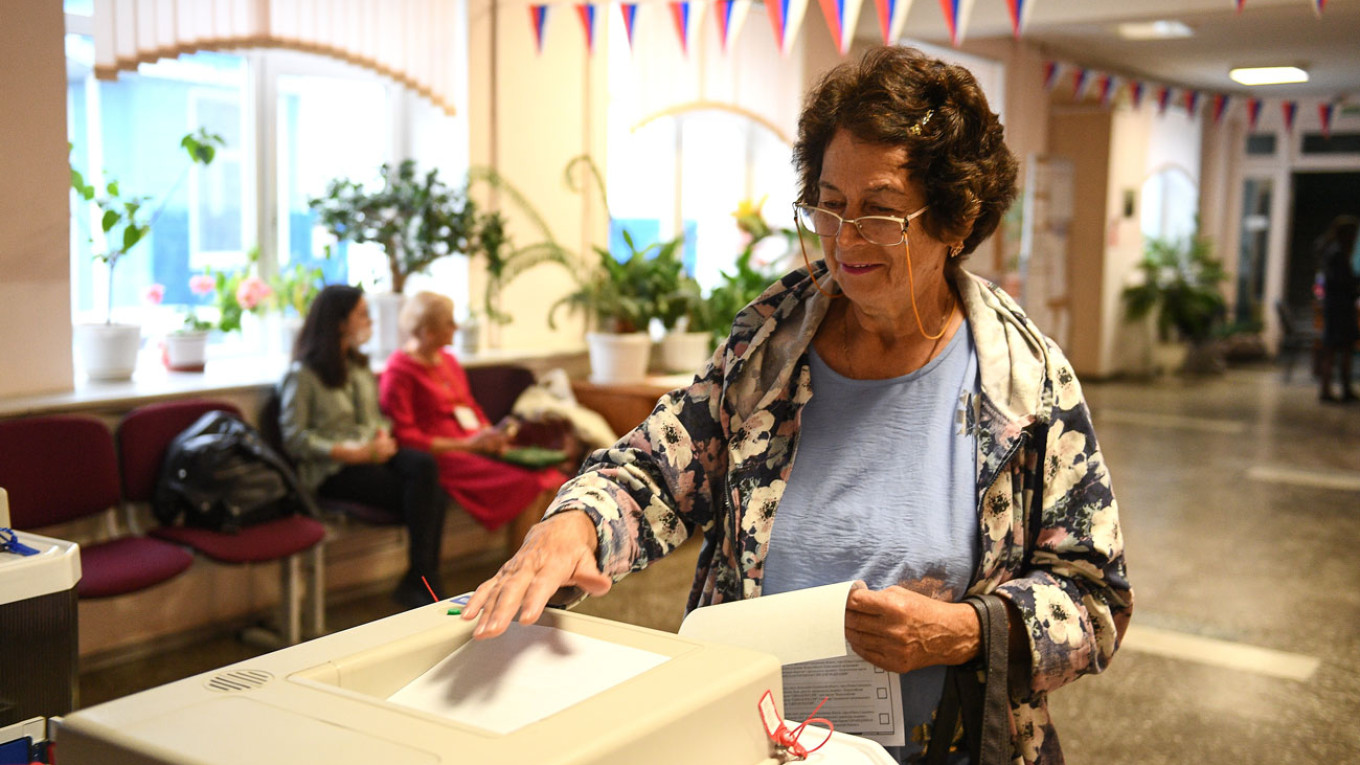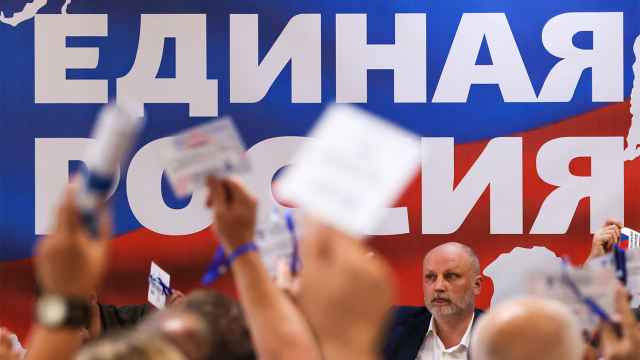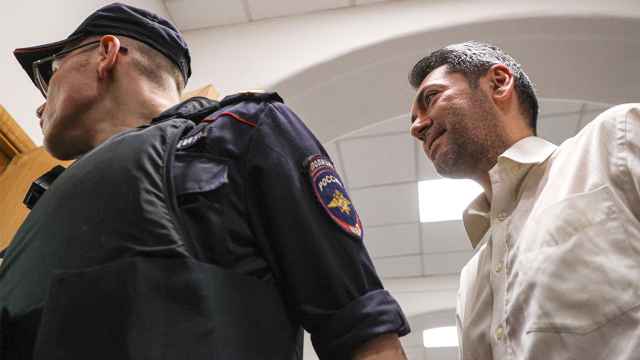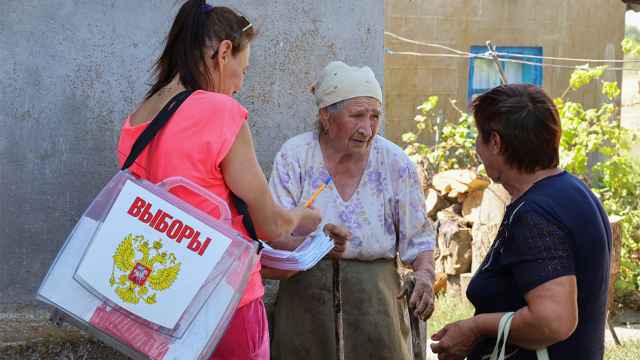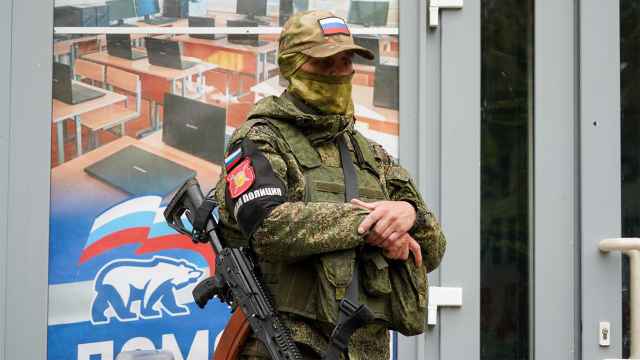Russians began voting Friday in the country’s first elections since the start of the invasion of Ukraine — a vote that is unlikely to yield any political upsets for the Kremlin, but will be seen as an indicator of the public mood following six months of war.
More than 31,000 positions are up for grabs in local elections in 82 regions across the country, including 14 governorships and 1,417 municipal councils seats in Moscow.
Campaigning ahead of the vote has been low-key, overshadowed by wartime censorship laws and the arrest of opposition politicians. And the elections themselves are expected to be accompanied by vote rigging and result in the triumph of Kremlin-backed candidates, according to experts and participants who spoke to The Moscow Times.
“There is little meaningful electoral competition, especially since the crackdown on dissenting voices following [opposition figure] Alexei Navalny's return to Russia… and even more so since the February full-scale invasion of Ukraine,” Ben Noble, professor of Russian politics at University College London, told The Moscow Times.
But the few remaining independent candidates still hope for a miracle.
“I can’t predict anything but I live with the thought that, whatever happens, I have done everything I could and that life isn’t over with this campaign,” said Mikhail Novosyolov, 19, a university student standing in municipal council elections in Moscow.
While votes are taking place all across Russia, the most significant challenge from Russia’s fractured opposition is likely to be in the capital.
“The municipal-level elections might be the most interesting,” Stanislav Andreychuk, a board member of elections NGO Golos, told The Moscow Times. “I would watch those.”
More than a hundred independent candidates will attempt to take seats on municipal councils from Kremlin-backed candidates in Moscow alone, although similar votes are also taking place in cities including Vladivostok in the Far East.
Jailed opposition leader Navalny has urged his supporters Tuesday to use his “smart voting” strategy, which highlights one candidate in each voting district who is most likely to beat the ruling United Russia party, in Moscow elections.
“The focus on Moscow might be a basic question of capacity: proposing candidates for all races might be too much for a team with a broad array of projects,” said Noble, who co-authored the first English-language book about Navalny.
The lowest rung of Russian local government, municipal councils have limited financing and few powers, but have become increasingly contested as Russia’s small opposition is pushed out of mainstream politics amid Kremlin pressure.
Like at least 24 other Moscow municipal deputies, Konstantin Yankauskas was barred from this year’s race following a conviction for “displaying extremist symbols” resulting from his support for Navalny, whose political organizations were designated extremist last year.
Nevertheless, Yankauskas is campaigning for other opposition candidates in Moscow’s southwestern Zyuzino district.
“I did door-to-door canvassing almost every day… and felt enormous support from the residents and a very negative attitude towards United Russia, so, if the vote count is honest, then our team should win,” he said.
Both online and polling station voting in Moscow will take place over three days beginning Friday. The prolonged voting time also makes it more difficult for the opposition to recruit enough independent election observers to monitor for fraud.
Candidates still in the race are preparing for significant vote-rigging, including via the online voting system pioneered in last year’s parliamentary elections.
“It’s like a lottery. The municipal elections were turned into a big black box that is online voting,” said Novosyolov, 19, who is competing in Moscow’s eastern Izmaylovo district.
“Just like with the State Duma elections, there is a chance we will go to sleep with the paper vote results that show our team winning, but will wake up to some different result that was invented by United Russia,” said Yankauskas.
On top of attempted electoral fraud, aspiring deputies also have to fight against apathy and fear among opposition-minded voters who decided not to flee the country amid an unprecedented political crackdown after the invasion of Ukraine in February.
The longest prison sentence yet handed down under Russia’s wartime censorship laws was to opposition municipal council deputy Alexei Gorinov, who was sent to prison for seven years in July for questioning a council decision to hold a children’s event in the weeks following the invasion of Ukraine.
“Many people are demoralized, depressed… elections are not on their minds,” said Golos’ Andreychuk.
Even in pre-war Russia, municipal elections often saw extremely low turnouts.
For opposition candidates, it means that votes will be won — literally — by “bringing the supporters to the polling station by hand,” according to Andreychuk.
Alexandr Zamyatin, co-founder of the VyDvizhenie initiative that trains and supports aspiring Moscow municipal deputies, said the key “intrigue” of the upcoming election was not actually the number of seats won by the opposition.
“There are serious tectonic shifts happening within Moscow’s opposition-minded circles,” Zamyatin told The Moscow Times.
“I believe one of the results of the elections will be the re-shaping of the Moscow opposition.”
Outside Moscow, most of the governorships, regional legislatures and municipal councils up for grabs look set to be won easily by United Russia or Kremlin-backed candidates.
One of the tightest races in 14 governor elections is likely to be in the central republic of Udmurtia, where the Kremlin-backed incumbent Alexandr Brechalov is trying to face down a challenge from Communist Party nominee Alexandr Syrov.
In the republic of North Ossetia, where tensions between the Kremlin-appointed governor Sergei Menyaylo and local elites could take votes from the ruling United Russia party, some analysts believe the Just Russia political party could win the regional legislature.
Either way, few expect there to be any dramatic upsets.
“The protest vote seen in autumn 2018 after the deeply unpopular pension reforms shows that the Kremlin can be caught by surprise,” said expert Noble.
“And yet, the dramatic repression seen this year makes such a protest vote scenario much less likely now.”
A Message from The Moscow Times:
Dear readers,
We are facing unprecedented challenges. Russia's Prosecutor General's Office has designated The Moscow Times as an "undesirable" organization, criminalizing our work and putting our staff at risk of prosecution. This follows our earlier unjust labeling as a "foreign agent."
These actions are direct attempts to silence independent journalism in Russia. The authorities claim our work "discredits the decisions of the Russian leadership." We see things differently: we strive to provide accurate, unbiased reporting on Russia.
We, the journalists of The Moscow Times, refuse to be silenced. But to continue our work, we need your help.
Your support, no matter how small, makes a world of difference. If you can, please support us monthly starting from just $2. It's quick to set up, and every contribution makes a significant impact.
By supporting The Moscow Times, you're defending open, independent journalism in the face of repression. Thank you for standing with us.
Remind me later.



